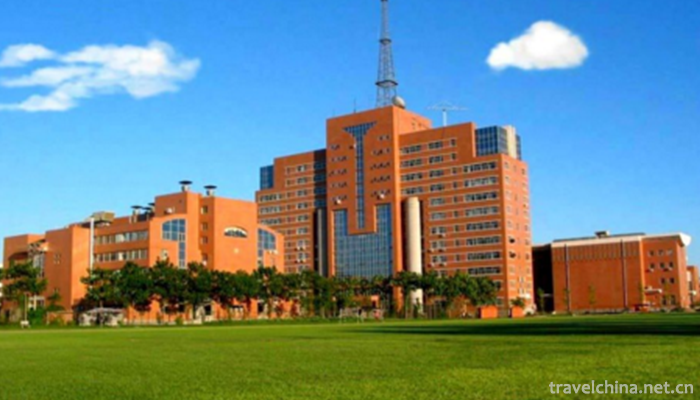Beijing Electronic Science and Technology Institute
Beijing Electronic Science and Technology Institute is a general university which trains specialists in information security and office automation for Party and government organs at all levels. The College belongs to the General Office of the Central Committee of the Communist Party of China.
The predecessor of the Institute was the training course for young cadres of the Central Committee of Labour, which was held in Xibaipo, Pingshan County, Hebei Province in August 1947, and was directly managed by the Central Committee of Labour. In the past 70 years, it has experienced the development periods of Zhangjiakou Military Commission Engineering School, Beijing Electronic College and Beijing Institute of Electronic Science and Technology. The College is located at No. 7 Fufeng Road, Fengtai District, Beijing. There are more than 2000 full-time students.
Since its establishment, the College has always received the cordial care and great attention of the leadership of the Party Central Committee and the General Office of the Central Committee. Comrades Mao Zedong, Deng Xiaoping, Jiang Zemin, Hu Jintao and Xi Jinping wrote inscriptions and encouragement successively. Comrade Jiang Zemin also wrote the name of the college. Qiao Shi, Wen Jiabao, Zeng Qinghong, Wang Gang, Li Zhanshu and other leading comrades of the Central Committee have made many important instructions for the development and construction of the College and have visited the College many times.
With the development of the college, it has become a teaching-oriented general higher education institution, which mainly focuses on work and coordinates the development of science, engineering and management. There are four departments and two teaching departments: Department of Cryptography Science and Technology, Department of Cyberspace Security, Department of Electronic and Communications Engineering, Department of Management, Department of Ideological and Political Theory Teaching and Research and Department of Humanities and Social Sciences Teaching and Research. There are eight undergraduate majors.
The College has one academic master's authorization point for the first-level disciplines of cyberspace security, one professional master's degree authorization point for electronic information categories (including electronic and communication engineering and computer technology), and one academic type for cryptography, information and communication engineering and computer application technology jointly trained with Xi'an University of Electronic Science and Technology. Master's degree and doctoral degree in Cyberspace Security with China University of Science and Technology and Beijing University of Posts and Telecommunications.
The college actively implements the strategy of "strengthening the university with talents", and has a strong teaching and scientific research force. More than 55% of full-time teachers have senior titles and 85% have master's and doctoral degrees. More than 20 teachers enjoy the special allowance of the State Council Government. Many of them have been awarded the titles of "Famous Teachers in Beijing Teaching", "Excellent Teachers in Beijing" and "Young Backbone Teachers in Beijing".
The College has provided a large number of high-quality talents for the Party and the country. Among the alumni, there emerged a number of pacesetters and advanced model figures from all walks of life. More than 50 people had held leading posts at provincial, ministerial, military and state bureaus, and more than 400 people held leading posts at the level of state ministries and departments.

0 Questions
Ask a Question
Your email address will not be published.